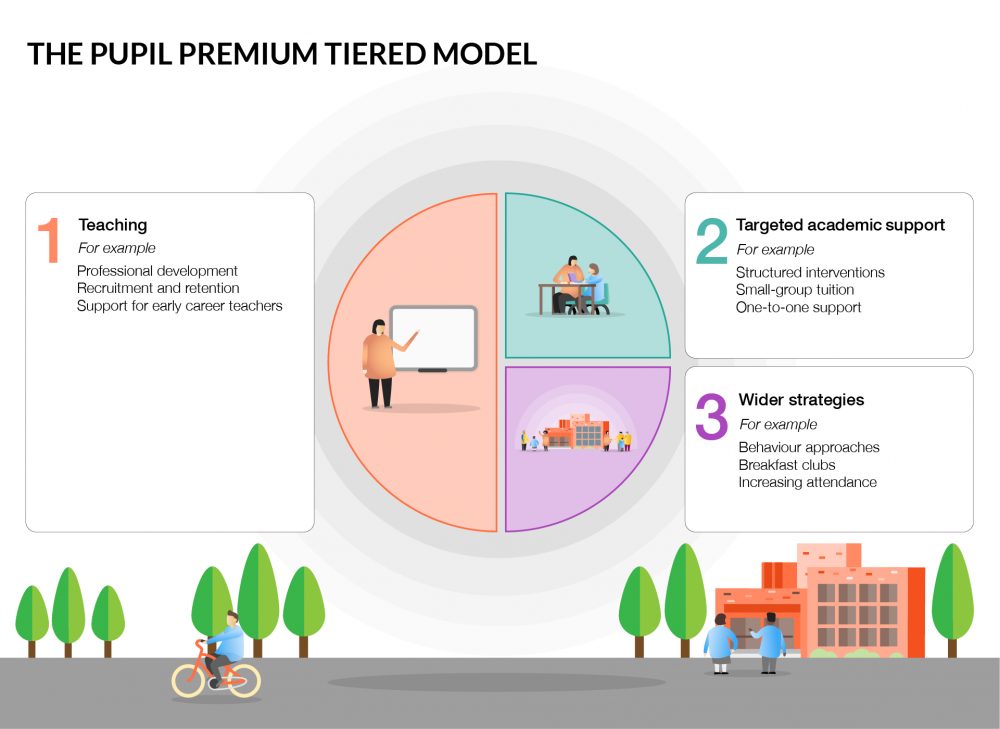Please click here to view our Pupil Premium report - Ridgeway Farm Statement 2025/2026 and review 2024-2025
RF PP Statement 2024/2025 and review 2023/2024
RF PP Statement 2023/2024 and review 2022/2023
RF PP Statement 2022/2023 and review 2021/2022
What’s the purpose of pupil premium funding?
Publicly-funded schools in England get extra funding from the government to help them improve the attainment of their disadvantaged pupils. The pupil premium grant is designed to allow schools to help disadvantaged pupils by improving their progress and academic outcomes.
Schools decide which ways of spending this money would have the greatest impact on removing barriers to learning and supporting these groups. The school Governors challenge the school to ensure we use the money to the best advantage of these children and an allocated Governor evaluates the work being undertaken and its impact. The school may use the funding on whole school initiatives, targeted interventions or wider support.

How much money does the school get?
Schools get pupil premium funding based on the number of pupils they have in January each year from the following groups.
Benefits Related Free School Meals
Schools get £1,480 for every primary age pupil who claims free school meals, or who has claimed free school meals in the last 6 years.
Your child/ren is eligible if you receive any of the following benefits:
- Universal credit (provided you have a net income of £7400 or less)
- Income support
- Income-based jobseekers’ allowance
- Income-related employment and support allowance
- Support under Part IV of the Immigration and Asylum Act 1999
- The guaranteed element of state pension credit
- Child tax credit, provided that you are not also entitled to working tax credit and have an annual gross income of £16,190 or less
Looked-after and Previously Looked After Children
Schools get £2,570 for every pupil who has left local authority care through adoption, a special guardianship order or child arrangements order.
Local authorities get the same amount for each child they are looking after; they must work with the school to decide how the money is used to support the child’s Personal Education Plan.
Service Premium
The service premium is not part of the pupil premium as the rules to attract the service premium are different.
Schools get £340 for every pupil with a parent who:
- is serving in HM Forces
- has retired on a pension from the Ministry of Defence
This funding is to help with pastoral support.
Academically Able Pupils
The pupil premium is not based on ability. Research shows that the most academically able pupils from disadvantaged backgrounds are most at risk of under-performing. Schools should focus on these pupils just as much as pupils with low results.
When making decisions about using pupil premium funding it is important to consider the context of the school and the subsequent challenges that this presents. Common barriers for FSM children (eligible for free school meals) can be less support from home, poor language and communication skills, lack of confidence, behavioural difficulties and attendance and punctuality issues. The challenges are varied and therefore each child’s situation is unique. Our key objective in using the pupil premium is to ensure that all children attain to the best of their ability. We believe it is unacceptable for children’s success to be determined by their social circumstances. We intend to raise levels of achievement for all disadvantaged pupils and to close the gap between disadvantaged children and their peers
If you think that your child is entitled to receive free school meals and they are not registered, please click HERE for more information, phone us on 01793 677471 or come into the school office for more information.
Mrs Gibbard is the contact for parents of those children in receipt of Pupil Premium and will be able to give you more information about how they are being supported in school.